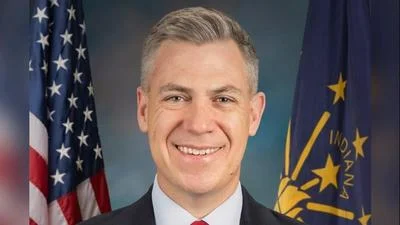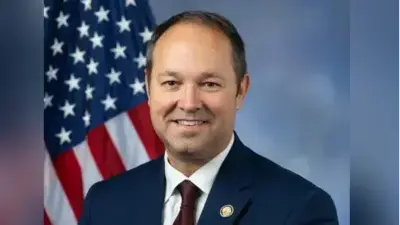Rep. Jim Banks U.S. Representative for Indiana's 3rd District | Official U.S. House headshot
Rep. Jim Banks U.S. Representative for Indiana's 3rd District | Official U.S. House headshot
Rep. Jim Banks (R-Ind.) introduced the Head Start Improvement Act today, aiming to enhance the Head Start program by reducing bureaucracy and allocating funds directly to states through block grants. Senator Mike Lee (R-Utah) presented a companion bill in the Senate, with both pieces of legislation receiving support from Heritage Action.
Rep. Jim Banks stated, "Washington bureaucrats can’t possibly know how to best serve children in Indiana, Utah, or any state beyond the beltway. My bill with Senator Mike Lee decentralizes Head Start and gives more decision-making power back to the local leaders and parents who are better equipped to serve children in our communities."
Senator Mike Lee added, "This bill would ensure that those closest to our children—parents, teachers, and local officials—have the autonomy to tailor educational opportunities that meet the unique needs of their communities. This legislation is about trusting Americans to know what's best for their families rather than mandating one-size-fits-all solutions from Washington."
Heritage Action also expressed its support: “As usual, burdensome red tape has turned a well-meaning program into one that fails children and is a bad investment for taxpayers—keeping control of education out of local hands, where it belongs. Big government is holding the Head Start program back instead of sending resources directly to families, schools, and communities that need them most. Heritage Action thanks Rep. Banks and Sen. Lee for their work to get the government out of the way so students can get ahead.”
The key provisions of the Head Start Improvement Act include:
- Allocating Head Start funds directly to states, territories, and federally recognized Indian Tribes through block grants.
- Distributing funds based on the number of children aged 3-5 from families below 100% of the poverty line within each state.
- Requiring states to provide a 20% match for all federal funds granted.
- Permitting states to use funding for state school choice programs.
- Mandating that all funds be used for prekindergarten education administration, direct technical assistance, oversight, monitoring, research, and training.
- Directing the Comptroller General to submit a report comparing different approaches used by grant recipients.





 Alerts Sign-up
Alerts Sign-up